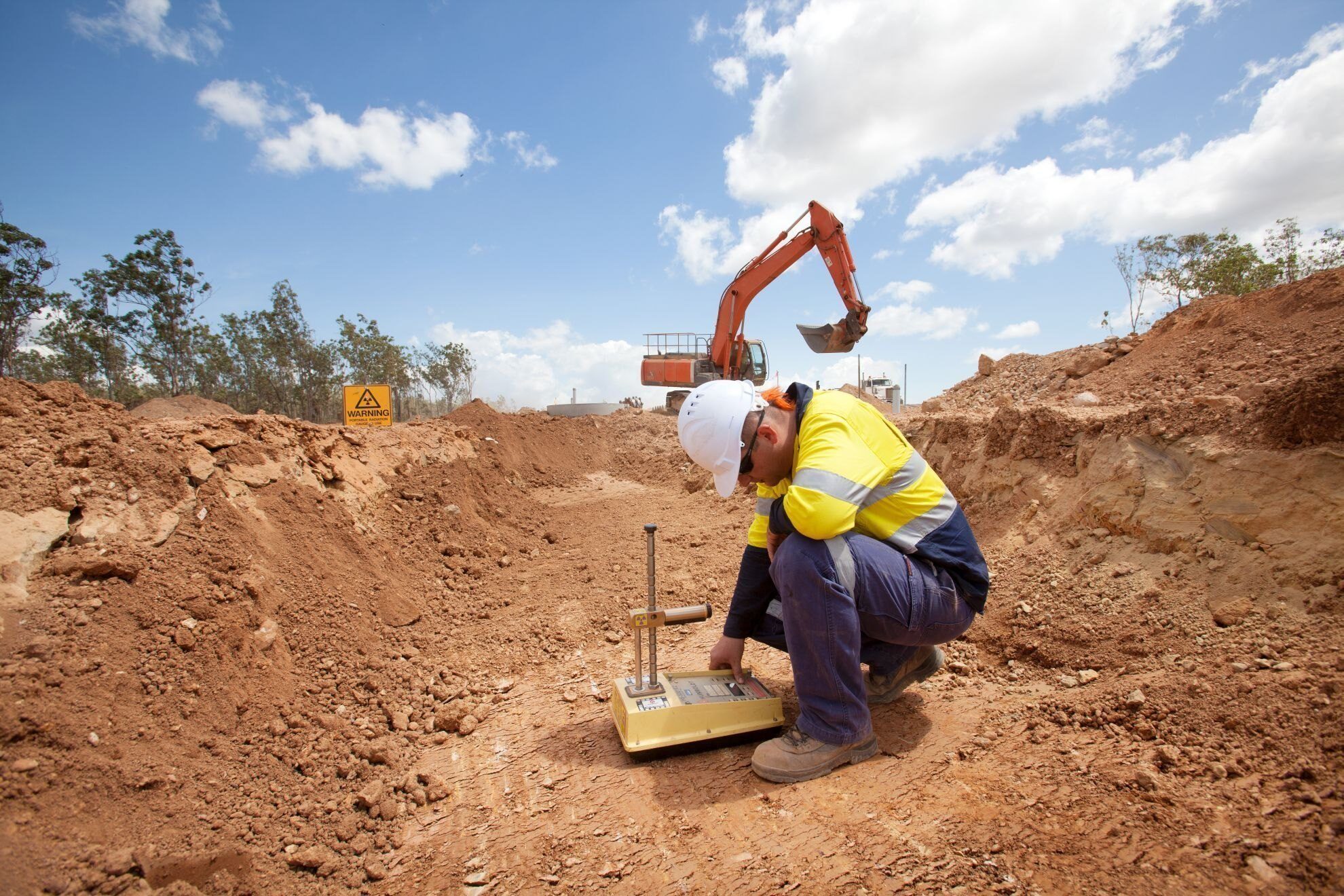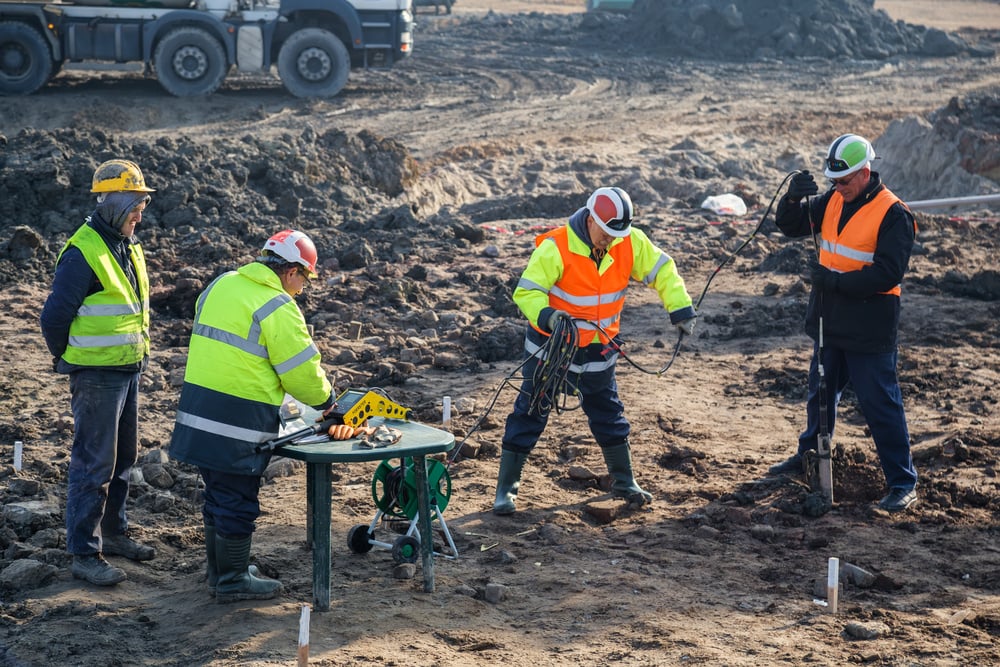Specialized Geotechnical Engineering Solutions - Questions
Specialized Geotechnical Engineering Solutions - Questions
Blog Article
The Specialized Geotechnical Engineering Solutions Statements
Table of ContentsSome Known Details About Specialized Geotechnical Engineering Solutions Top Guidelines Of Specialized Geotechnical Engineering SolutionsSpecialized Geotechnical Engineering Solutions Things To Know Before You BuyNot known Facts About Specialized Geotechnical Engineering Solutions
They perform site examinations, collect samples, carry out research laboratory tests, and assess information to assess the suitability of the ground for building tasks. Based upon their findings, geotechnical designers give suggestions for foundation style, incline security, retaining structures, and reduction of geotechnical dangers. They work together with various other experts, such as architects, structural engineers, and building teams, to guarantee that geotechnical considerations are integrated into the general job design and application.
Structure Style: Geotechnical engineers play a critical duty in creating structures that can safely sustain the intended framework. They analyze the soil problems and lots requirements to determine the suitable structure type, such as shallow structures (e.g., footings), deep structures (e.g., stacks), or specialized methods like dirt improvement. They take into consideration aspects such as settlement limits, bearing capacity, and soil-structure communication to create optimum foundation designs.
The Best Strategy To Use For Specialized Geotechnical Engineering Solutions
Below are some types of geotechnical engineers: Structure Engineer: Foundation engineers concentrate on developing and assessing structures for structures - Specialized Geotechnical Engineering Solutions. They evaluate the dirt problems, tons demands, and website characteristics to identify the most suitable foundation kind and style, such as shallow structures, deep foundations, or specialized strategies like heap foundations
They execute area testing, accumulate samples, and examine the gathered data to define the dirt residential properties, geologic developments, and groundwater problems at a site. Geotechnical Instrumentation Engineer: Geotechnical instrumentation engineers concentrate on monitoring and determining the actions of dirt, rock, and frameworks. They set up and preserve instrumentation systems that monitor aspects such as soil settlement, groundwater levels, incline movements, and structural variations to assess performance and provide early warnings of potential problems.
In the office atmosphere, geotechnical engineers utilize specialized software application devices to perform computations, create styles, and evaluate data. Specialized Geotechnical Engineering Solutions. They prepare reports, review job specifications, communicate with customers and employee, and coordinate project activities. The office setting gives a conducive environment for research, evaluation, and partnership with various other experts associated with the project
They often check out project sites to carry out site examinations, examine geotechnical click this site conditions, and gather data for evaluation. These brows through involve traveling to various locations, sometimes in remote or difficult terrains. Geotechnical engineers may execute dirt tasting, conduct tests, and monitor construction tasks to make sure that the geotechnical facets of the project are being executed correctly.
Things about Specialized Geotechnical Engineering Solutions
Geotechnical designers likewise function in specialized geotechnical laboratories. Geotechnical laboratory engineers work thoroughly in these settings, handling testing devices, operating instruments, and tape-recording data.
Maintaining Walls: Creating wall surfaces that keep back dirt to stop landslides and supply security on sloped surfaces. Embankments and Earthworks: Creating embankments for roads, trains, and dams to ensure they stay stable under anxiety. The mining market depends heavily on geotechnical design to make sure the safety and longevity recommended you read of its operations.
With this in mind, we have created our program to prepare trainees for success. Geotechnical engineers are entailed in all phases of the layout of structures, from principle to building and construction. Their work is crucial in the design and preparation procedure as they analyze the integrity of soil, clay, silt, sand, and rock, prior to construction starting.
The Basic Principles Of Specialized Geotechnical Engineering Solutions
This is followed by a ground investigation based on the findings of the desk study and involves trial matching and sampling to reveal any type of possible concerns. Geotechnical engineers function within multidisciplinary teams, supported by intermediate and younger engineers along with by CAD service technicians. As an elderly geotechnical engineer on a hydro plant task, jobs may consist of taking part in technical reviews (e.g., peer testimonials), tailings dam evaluations, dam safety evaluations, and various other research studies associated to the style and construction of mine waste facilities.
While some professionals specialise only in geotechnics, others may work under titles like design geologist or ground engineer within similar capacities. As a geotechnical designer, you'll need to: develop and keep More Help relationships with clients and various other experts included in the website, throughout each projectmaintain security requirements on site be conscious of expense implications when you make recommendationsstudy geological maps and airborne pictures from a series of sources and from different time periodsexamine construction plans to see how viable they are based on your understanding of the siteinvestigate dangers or geological dangers for the sitesearch for ecologically delicate attributes, such as land fill begin to develop factual and expository ground modelsplan area investigationsdrill and analyse examples of bedrock, dirt, groundwater and added materials oversee other specialists on sitesolve technological problems as they arise, such as unforeseen frameworks at drill sitesmonitor conditions throughout and after building to ensure frameworks are steady in the short and lengthy termadd information gathered on website to your preliminary researchcreate geotechnical estimations, illustrations, and two or three-dimensional computer system models interpreting the datamake suggestions concerning the recommended use the site.
There are lots of possibilities to satisfy new people, as you'll collaborate with a series of experts at every site. The job can be difficult as you might be accountable for the security of others while on website. There is additionally a high level of financial responsibility, as the suggestions you make can have serious price implications.

Report this page